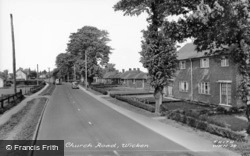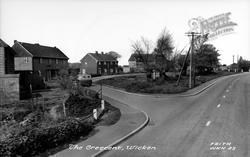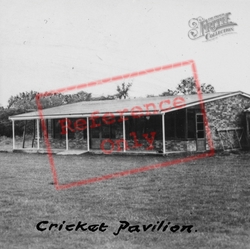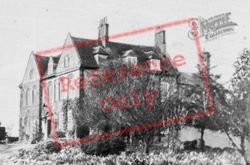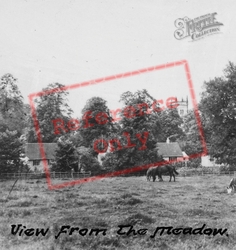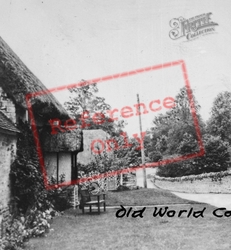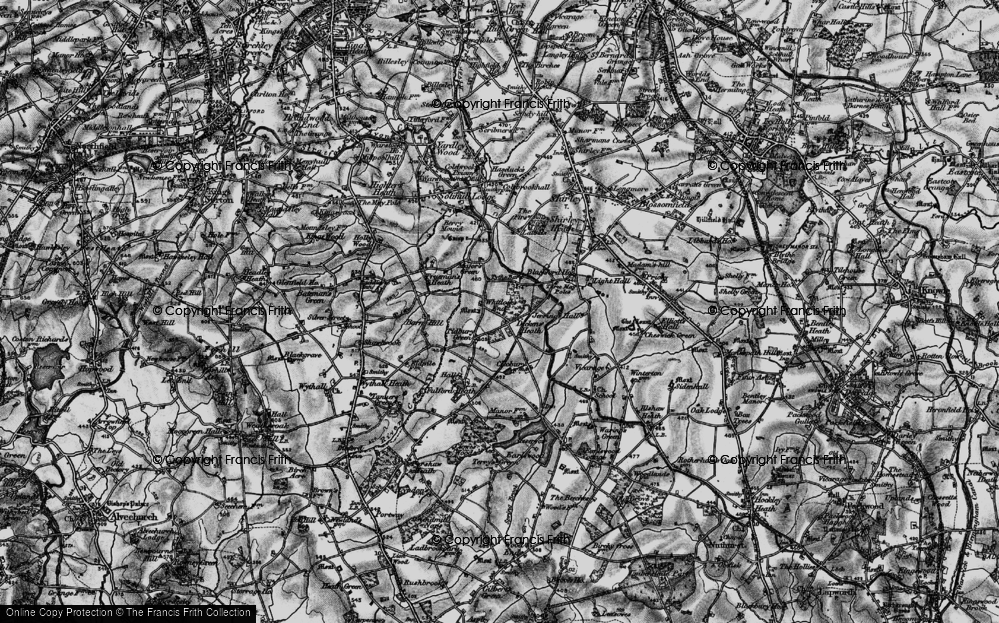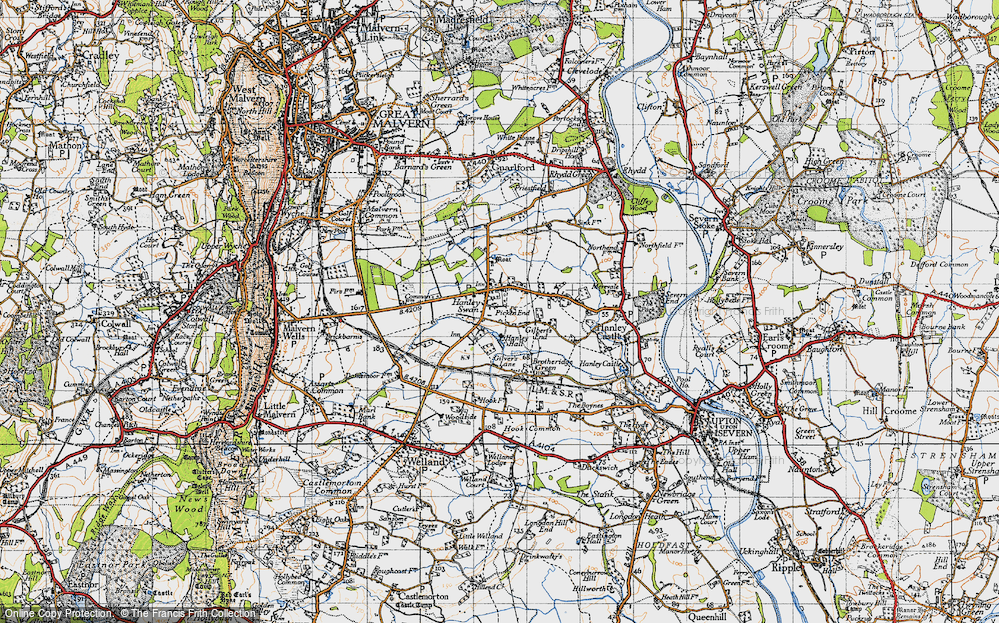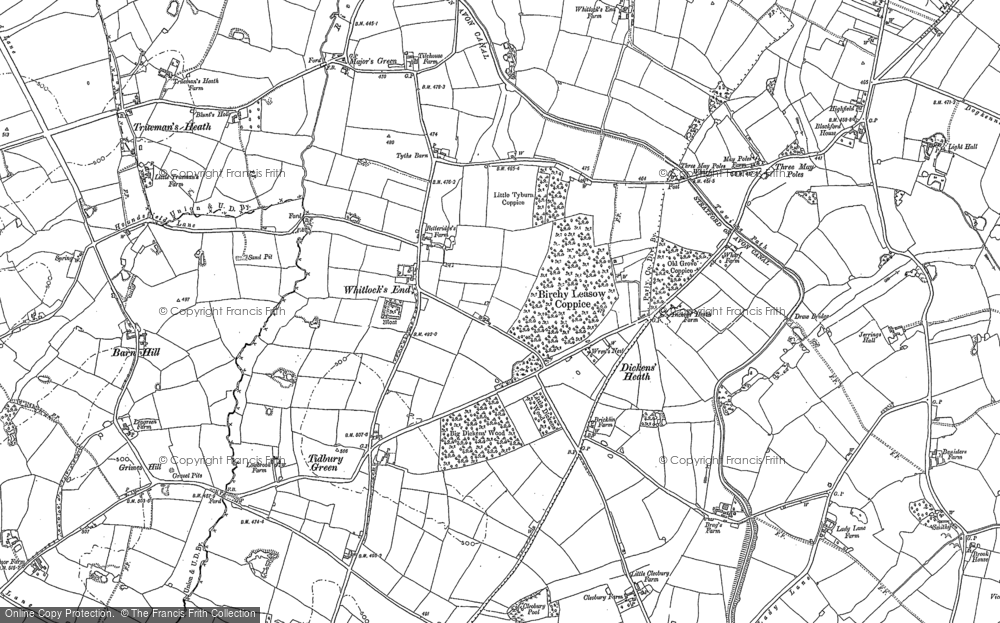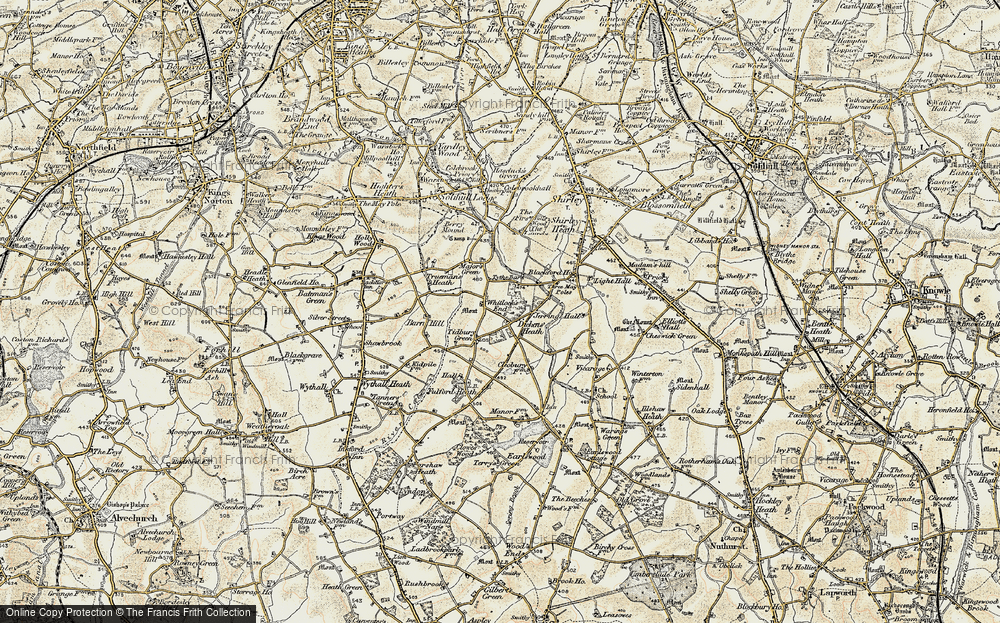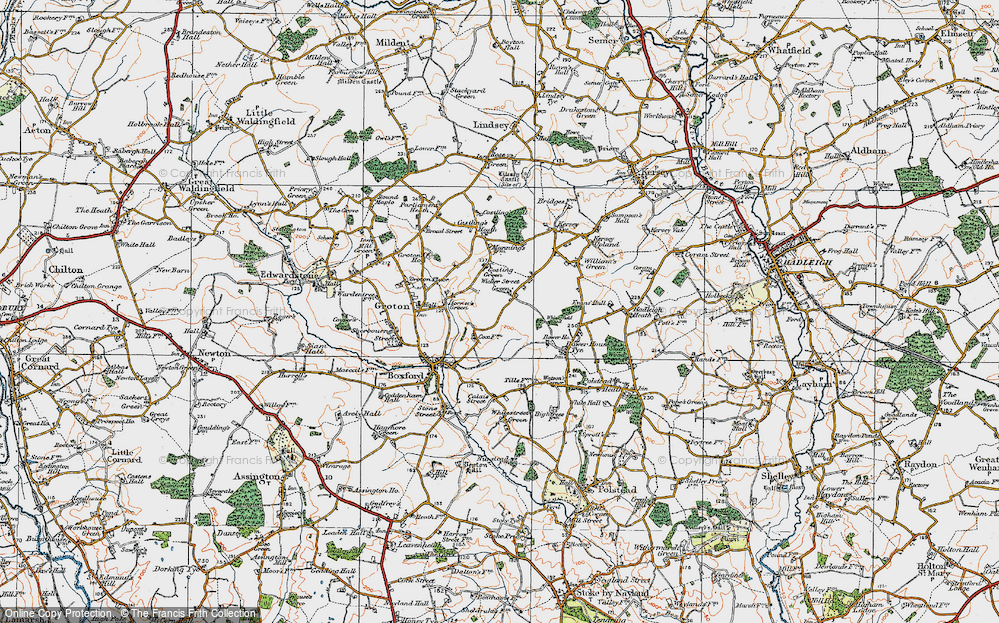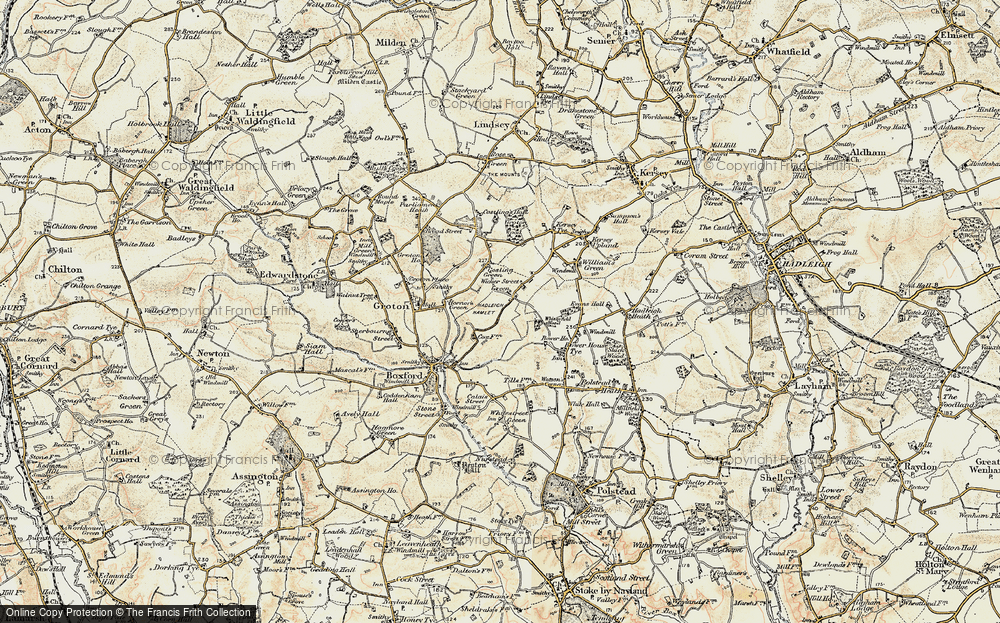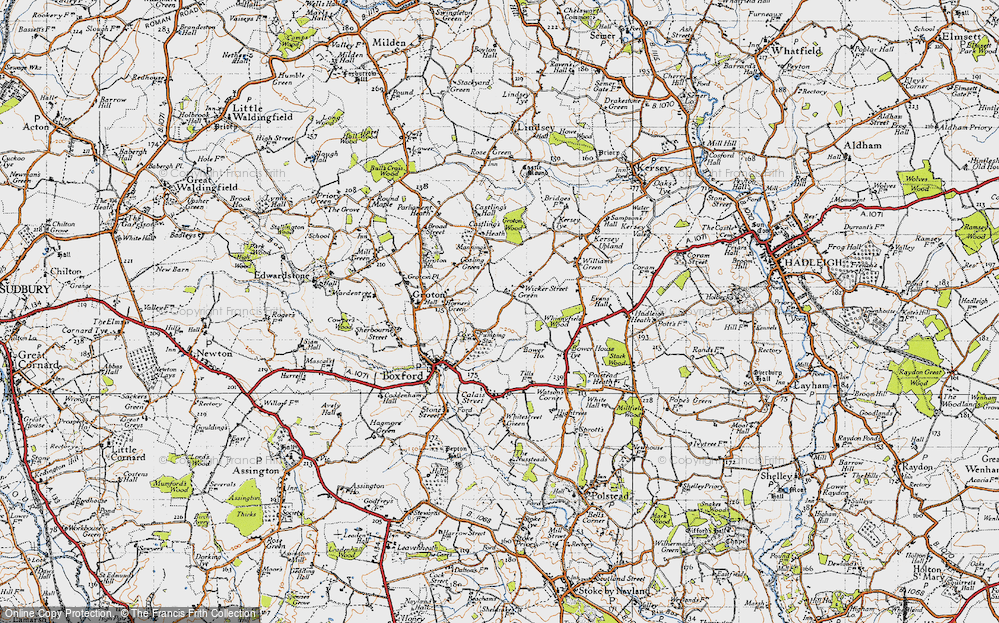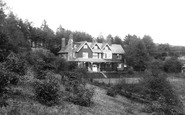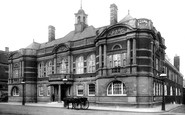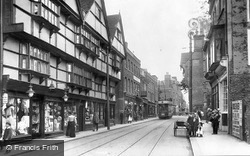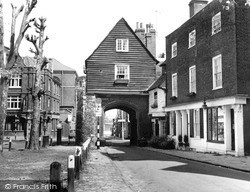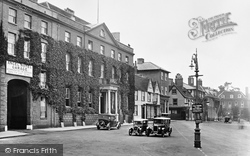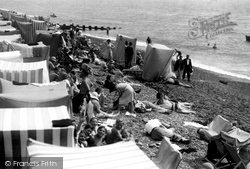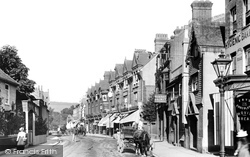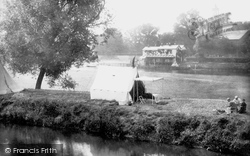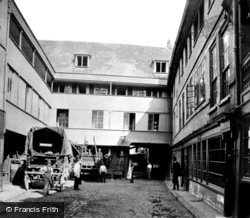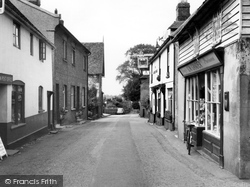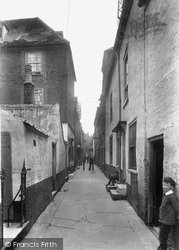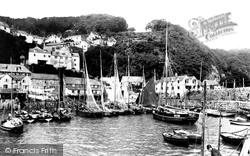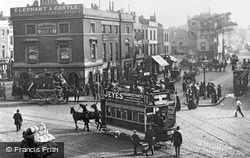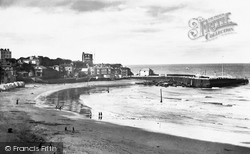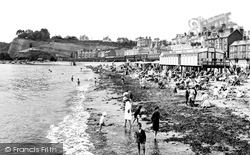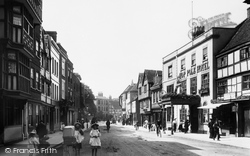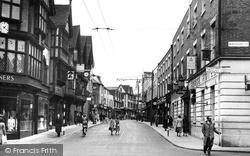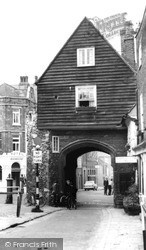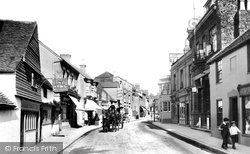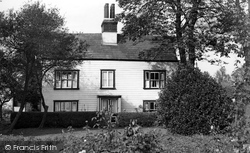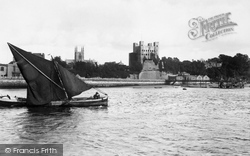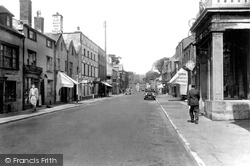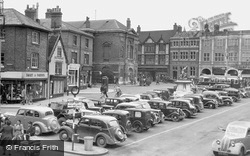Places
4 places found.
Those places high-lighted have photos. All locations may have maps, books and memories.
Photos
26 photos found. Showing results 21 to 26.
Maps
29 maps found.
Books
Sorry, no books were found that related to your search.
Memories
69 memories found. Showing results 11 to 20.
The Brickyard Charlwood
I lived at Lowfield Park Lodge on the Charlwood Road (from the long-disappeared Lowfield Heath) from about 1950 to 1962, and I believe the house was demolished around 1965(???) to make way for the expansion of Gatwick ...Read more
A memory of Charlwood in 1950 by
Playing In The Corn Fields
I lived in the cottage next to the Chapel, and played with Wendy, we used to cycle to Upware and Wicken fen. At one point we would sit on the haystacks after the farmers had finished them. I would go horse riding ...Read more
A memory of Swaffham Prior in 1966 by
'goldcrest' On The A 287
I was evacuated from Battersea, South London, in 1944 to a large house named 'Goldcrest' on the Hindhead Road not far from Beacon Hill and have some happy memories of that time although as it was wartime everything seemed ...Read more
A memory of Hindhead in 1944 by
Memories Of St Peters And Broadstairs
I was born at 19 Church St, St Peters, where my grandfather owned the butchers shop. My first memory is of playing on the lino floor just inside the front door. My father, who served in the RAF during the ...Read more
A memory of Broadstairs in 1950 by
Curtin Drive
I was brought up in Curtin Drive from 1962 to 1972. We moved in to no 45 when I was 6 from Fraiser Street, Bilston. I remember having carefree days playing with my mates in the "sana" or on the "cut". I would love to hear from Russel ...Read more
A memory of Moxley in 1970 by
Born In Doxey
Hello readers, I was born in Doxey and have fond childhood memories of the village as it then was. I lived at 227 whilst Granny (Picken) lived next door at 226. Granny and her first husband Harry Parsons kept the Castle Tavern on Doxey ...Read more
A memory of Doxey by
Great Leighs
we moved from Borham airfield just across a cornfield to a thatched cottage, the walls were wattle and daub which a farmer let out to farm workers normally, It had no electricity, flush toilet , bathroom, but it had heaps of room ...Read more
A memory of Great Leighs by
Middlecroft Secondary Modern
I loved this school, having many happy memories, so if anyone is out there who knew me please get in touch. I was Magsy Evans, then went to live in Lincoln in 1965. I had good times with Val Dickens, Dianne Hilton and Rosemary Harrison.
A memory of Staveley in 1965 by
Bourne County Primary School
I also attended the primary school at Bourne from 1955 to 1963 before moving to Heckington in 1964. I remember mostly with fondness, my time at the school, especially my time in Mr. Lamberts class 3 as it was when I ...Read more
A memory of Bourne in 1963 by
I Remember My Friend Charlie Keeble Of 1 Or 2 Dickens Street
I want to find my childhood friend Charlie Keeble who lived at 1 Dickens Street SW8. He will be 65 or 66 or 67 now. My phone number 0208 679 2746. You were a wonderful friend Charlie ...Read more
A memory of Battersea by
Captions
106 captions found. Showing results 25 to 48.
Opposite is Eastgate House of 1590, now part of the Charles Dickens Centre.
It was built in the early 15th century, and is also known as Chertsey's Gate or 'Jasper's Gate', by which name it appears in Dickens' novel 'Edwin Drood'.
The Angel Hotel was immortalised in Dickens' 'Pickwick Papers'.
Folkestone was popular with authors: Charles Dickens rented a property here while writing Little Dorrit, and H G Wells lived at Spade House while he wrote Kipps and The History of Mr Polly.
Charles Dickens is reputed to have penned 'The Pickwick Papers' on one of his many visits to Dorking. The inn has changed little in its appearance over the last two centuries.
It was under a churchyard yew at Sunbury that Dickens sets the scene where Bill Sikes and Oliver rest before the burglary in 'Oliver Twist'.
Charles Dickens features the George in his novel 'Little Dorrit'.
The typically Kentish peg-tiled roof, with its garnish of houseleek and lichen, would have been known to Charles Dickens, for whom a favourite walk was from his Gad's Hill home near Strood to Shorne
They were likened by Dickens to the bars of a gridiron. Congested with cottages, whitewashed yards and washing lines, they were the home ground of the working population of the town.
It was largely unknown to the world until Charles Kingsley and Charles Dickens wrote about it. Since then, its fame has become legendary.
The Angel Hotel was immortalised in Dickens `Pickwick Papers`.
The Elephant and Castle, a great meeting place of thoroughfares, was termed a ‘ganglion of roads’ by Dickens in ‘Bleak House’.The squat old inn that gave it its name dominates the scene, and is offering
The 'rare good sands', as Charles Dickens described them, still form the focal point of this 'old-fashioned watering place' where 'Nicholas Nickleby', 'David Copperfield', 'The Old Curiosity Shop', and
Jane Austen visited the town and mentioned it in one of her novels, while Charles Dickens chose it as the birthplace of his eponymous hero in 'Nicholas Nickleby'.
The hotel, which incorporates parts of a 14th-century building, features in Charles Dickens's 'Pickwick Papers'; it is in front of the hotel's ancient fireplace that Mr Pickwick warms his coat tails.
On the corner is the Great White Horse Hotel (right), where Dickens' Mr Pickwick, returning to the wrong room, disturbed a lady wearing yellow curling papers.
Charles Dickens incorporated it in his novel 'Edwin Drood' as Jasper's Gate.
All along the Thames, and described powerfully by Charles Dickens, houses, inns and tenements tottered and decayed in places such as Deptford, Wapping and Shadwell.
The half-timbered 17th-century King's Arms, on the left, lays claim, along with The King's Head in neighbouring North Street, to be the original Marquis of Granby in Charles Dickens' comic novel The Pickwick
It was built in about 1570, and is said to be both London's oldest shop and the inspiration for Charles Dickens's home of Little Nell.
It is built on the original line of buildings which ended with the first Maypole Inn with its pond and green, which constituted the Chigwell Row which Dickens knew.
The city was known as the home of the novelist Charles Dickens, who died in 1870.
Both Dr Johnson and Charles Dickens stayed here.
The Angel Hotel which gave its name to the square was immortalised by Charles Dickens in 'The Pickwick Papers'.
Places (4)
Photos (26)
Memories (69)
Books (0)
Maps (29)


